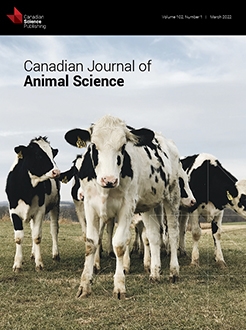Two experiments were conducted to evaluate diet digestibility, performance, digestive parameters, and blood parameters when an enzyme complex (EC) was used in barley- and rye-based diets with different energy levels. In the digestibility assay (exp. I), 108 seventeen-day-old Cobb male broilers were distributed in a completely randomized design in 2 × 2 × 2 + 1 factorial arrangement with two feeds (barley or rye), two EC levels (0% and 0.02%), and two energy levels [3025 and 3125 kcal apparent metabolizable energy (AME)·kg−1], plus a control treatment. In exp. II, 1080 one-day-old Cobb male broilers were distributed in a completely randomized design in 2 × 2 × 2 + 1 factorial arrangement with two feeds (barley or rye), two EC levels (0% and 0.02%), and two energy levels (2875 and 2975 kcal AME·kg−1). No interactions were observed for any variables (exp. I and II). Enzyme complex improved the apparent metabolizable coefficient of gross energy (P = 0.0432) of diets. The EC provided greater weight gain (P = 0.0003) and better feed conversion (P = 0.0025). Intestinal viscosity at 21 d was reduced (P < 0.0001) with the addition of the EC. The EC improved nutrient digestibility and performance, but the effects of energy reduction on performance could not be overcome.
How to translate text using browser tools
23 December 2021
Enzyme complex addition in barley or rye broiler diets with two energy levels fed from 1 to 21 days
Caio Henrique Pereira de Souza,
Márcia Izumi Sakamoto,
Paulo Cesar Pozza,
Tatiana Carlesso dos Santos,
Humberto Marques Lipori,
Alceu Kazuo Hirata,
Alice Eiko Murakami
ACCESS THE FULL ARTICLE
It is not available for individual sale.
This article is only available to subscribers.
It is not available for individual sale.
It is not available for individual sale.
arabinoxylanes
arabinoxylans
digestibilité
digestibility
enzymes exogènes
exogenous enzymes
performance





